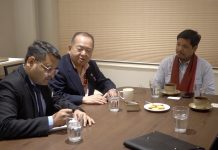Millennials are increasingly aware and cautious of global economic and financial issues.
Dubai, United Arab Emirates May 12, 2021 (Issuewire.com) –
We have witnessed firsthand a significant increase in political and economic uncertainty, and these events have shaped the way we view wealth planning. For example, most millennials are well educated on the global financial crisis of 2008 and its impact on markets. This crisis was caused by the investment and financial decisions of the generation before they and millennials have as a result become wary of both traditional institutions and long-term financial investments. We don’t trust forecasts, promises of future rates, or economists. Many of my generations now seek alternative investment options with shorter-term gains. This is a stark comparison to our parent’s generation, who heavily invested in traditional, long-term financial products.
In addition to this, my peers are the first generation to grow up with technology in the home and to have always used the internet and mobile phones for educational, social, and business purposes. We are ‘digital natives, in that we haven’t had to adopt digital technology like the generation before; it’s simply always been a part of our lives. This means that millennials can adapt to new technologies quickly and have an expectation of ‘on demand’ access and information. This does not differ for our businesses or management of our family wealth, so a modern family office would need to address this development in how they like to consume information and control decisions.
Large-scale philanthropy is another area of change. It has been a common hallmark of family offices for generations, yet millennials approach charitable donations and activity a little differently. The tech advancement of the 21st century has made the world a smaller place through automation and connectivity. As such, millennials have instant access to global concerns regarding environmental, health, and educational challenges, to name a few. Whereas their parents tended to give closer to home, millennials have fewer hang-ups about giving across borders and cultures. Furthermore, there appears to be a huge increase in millennials’ appetite for impact investing, or in other words, investing into companies or businesses with the intention of generating an impact on causes whilst also obtaining a financial return for doing so.
Finally, just as this generation are digital natives, so too are they ‘transparency natives’. They have come of age in a much more litigious and heavily regulated environment than the generation before, and commonly have fewer concerns about the wave of international reporting and compliance standards that have their elders so worried. I don’t think it is quite as simple as saying that they have a more relaxed attitude to privacy, exactly, as in many ways my generation has an even deeper divide between the public and the private than our predecessors; the divide just cuts in a different direction to where it used to.
What will need to change in a modern family office?
The millennial generation is seeking a convenient, on-demand solution where quick turnaround times and responses are required. We want to see advisors face to face throughout the year, sure, but the majority of communication is through multi-channel (or even better, ‘omni-channel’) delivery across email, Skype, Slack, social media, and other collaborative media. As such, the modern millennial family office will be required to invest and adapt to such digital methods of communication.
Similarly, unlike our parents, millennials put less emphasis on formal relationships with family advisors and principles. This will go hand in hand with the method and speed of communication. Instead of formal communication and dialogue, they will require a personalised approach where advisors seek to understand the family and develop an intimate understanding of the underlying goals and desires. It is clear that those advisors who had been appointed by previous generations may no longer remain appropriate for future generations. As such, there is a significant level of opportunities and threats for current family advisors and increasing emphasis on the importance of changing attitudes and methods to be able to continue assisting the family in later generations.
Since the financial crisis, traditional methods of investment and financial planning will be required to change. Alternative and more diverse investments will need to be catered for, along with an increase in luxury assets such as private jets, yachts, cars, art collections, and jewelry. We can also expect more of these investments, and the succession planning to be built around them, to be done with an increased focus on impact investing or sharing those assets with a broader set of beneficiaries.
Media Contact
Alastair Lidel – The Private Investment Group
alastair@theprivateinvestmentgroup.co.uk
http://www.theprivateinvestmentgroup.co.uk





